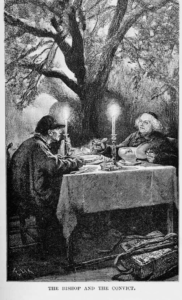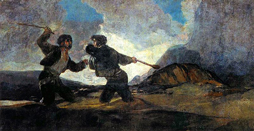[vc_row row_padding_bottom=”30″][vc_column][textbox title=”Civility in the Little Things” title_color=”#2f2f2f” title_fontsize=”40″ text_under_align=”center” subtitle=”Cherie Harder” subtitle_color=”#757575″ content_align=”center”][/vc_column][/vc_row][vc_row][vc_column width=”5/6″][vc_column_text]
Thursday, September 15, 2011
According to polls, “we the people” are rude. A recent nationwide study on civility in America found that 95% of Americans believe the level of civility in the country is a problem, and 65% consider it a “major” problem — and most believe it is getting worse.
The study, conducted by Weber Shandwick and Powell Tate in partnership with KRC Research, warned that “the tone of civility is causing Americans to tune out from the most fundamental elements of our democracy” — a particular danger, since informed — and civil — civic participation is essential to sustaining democratic government.
Political civility has never come easily. Colonists in the revolutionary era saw fit to tar and feather disagreeable Tories; the Civil War era brought brawls within the Senate chamber, not to mention the Civil War itself; and the Jim Crow era saw some of the vilest displays of intolerance in recent history. Virtually every decade holds examples of citizens stigmatizing, marginalizing, or demeaning those of unlike mind.
It is somewhat predictable (if no less corrosive) that deep and consequential differences should lead to angry divisions. More surprising, however, is the extraordinary incivility that regularly attends trivial disagreements.
Columbia University professor Wallace Sayre actually formulated a sociological “law” that pertains to this phenomenon: “In any dispute the intensity of feeling is inversely proportional to the value of the issues at stake.” “Sayre’s law” was later paraphrased in a witticism attributed to Henry Kissinger: “Academic politics are so vicious precisely because the stakes are so low.”
Certainly, there is much evidence to substantiate Sayre’s law, even beyond academic acrimony. Indeed, studies have found that Americans consider the most uncivil places in the country to be highways and high schools (hardly arenas for the clash of high ideals), along with government and talk radio.
Perhaps part of the reason for the viciousness of petty disputes is their lack of higher principle or ideals, and focus on one’s own image and status. While disagreements over matters of principle may lead to divisions, we are perhaps more quick to react — and react angrily — when our pride is pricked than when our ideals are assaulted.
On Monday, Trinity Forum and the Pepperdine University School of Public Policy will host what promises to be a fascinating and enlightening discussion between sociologist Os Guinness and New York Times columnist Ross Douthat on “Civility in the Public Square.” Os and Ross will engage the essential questions surrounding how we as a people can live with our deepest differences in a way that avoids deadly divisions.
It is one of the great challenges of our time. But perhaps a first and essential step towards developing a greater civility in the public square is practicing it in our personal space. Showing grace in the little things — including in responding to petty slights directed our way — is essential to clearing the ground for a greater public civility to flourish.
Warmly,
Cherie Harder
President
Further Reading
Os Guinness, The Case for Civility (Harper Collins, 2008)
Václav Havel, “Politics, Morality and Civility” (The Trinity Forum Reading, 2006)
Elton Trueblood, “Abraham Lincoln: The Spiritual Growth of a Public Man” (The Trinity Forum Reading, 1993)
[/vc_column_text][/vc_column][/vc_row]


